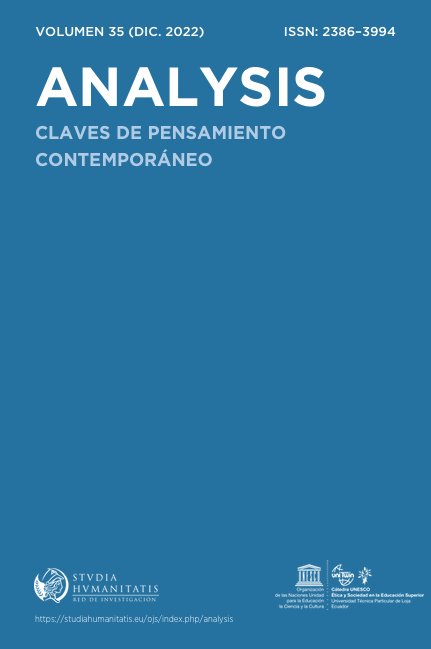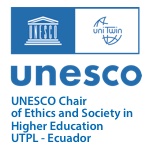Ethics in research: a case of English master's students
Abstract
The Knowledge of ethical principles and processes in research helps to guarantee the rights and obligations of the actors involved, such as demonstrating that the information is reliable giving credit to authors, etc. Therefore, the purpose of this study is to demonstrate the knowledge of the relationship between ethics and research to 63 of an English master training program in the south of Ecuador. A virtual survey and focus groups were applied to gather data. The results show that a high percentage of plagiarism due to a lack of knowledge of ethical principles.
Downloads
References
Al-Shredi, N., & Harb, F. (2022). “Knowledge and Attitudes of Plagiarism among Libyan EFL MA Students, Faculty of Languages, University of Tripoli”. Faculty of languages Journal, 1(26) 132-158. http://uot.edu.ly/journals/index.php/flj/article/view/262
Beardsley, Marc, Santos, Patricia, Hernández‐Leo, Davinia, y Michos, Konstantinos (2019). “Ethics in educational technology research: Informing participants on data sharing risks”. British Journal of Educational Technology, 50(3), 1019-1034. https://doi.org/10.1111/bjet.12781
Guamán Gómez, V. J., Herrera Martínez, L., & Espinoza Freire, E. E. (2021). La investigación y la formación de estudiantes de la carrera de Docencia en Educación Básica, Universidad Técnica de Machala. Conrado, 17(79), 55-61.
Hirsch Adler, A., & Navia Antezana, C. (2018). “Ética de la investigación y formadores de docentes”. Revista electrónica de investigación educativa, 20(3), 1-10.
Johnson, B. y Christensen, Larry, B (2007). Educational Research: Quantitative, Qualitative, and Mixed Approaches (3rd ed.). Thousand Oaks, CA: Sage.
Khoshsaligheh, Masood; Mehdizadkhani, Milad; y Keyvan, Sareh (2017). “Severity of Types of Violations of Research Ethics: Perception of Iranian Master’s Students of Translation”, Journal of Academic Ethics, 15(2), 125-140. https://doi.org/10.1007/s10805-017-9277
López-Calva, Juan. M. (2019). «Ética e investigación educativa: aproximación teórica para su comprensión desde la estructura dinámica del bien humano». Revista Colombiana de Educación, (76), 223-242. https://doi.org/10.17227/rce.num76-8556.
Medina Díaz, María y Verdejo Carrión, Ada. (2016). “Una mirada a la deshonestidad académica y el plagio estudiantil en algunas universidades de siete países de América Latina”. 1-16
Miles, Matthew. B. y Huberman, Michael (1994). Qualitative data analysis: An expanded sourcebook. Sage.
Paz Maldonado, Eddy Javier. (2018). “La Ética en la Investigación Educativa”. Ciencias Pedagógicas e Innovación 6(1), 45-51. http://dx.doi.org/10.26423/rcpi.v6i1.
Ramrathan, Labby, Le Grange, Lesley, and Philipp Higgs (2017). Education studies for initial teacher education. Cape Town: Juta.
Rissanen, Minka y Löfström, Erika (2014). «Students' research ethics competences and the university as a learning environment”, International Journal for Educational Integrity, 10(2). 17-30
Suarez, Alirio. J. (2017). “La Ética en la Investigación Educativa”. Revista Scientific, 2(4), 338-350. https://doi.org/10.29394/scientific.issn.2542-2987.2017.2.4.19.338-350
Copyright (c) 2022 © Analysis

This work is licensed under a Creative Commons Attribution-NonCommercial-NoDerivatives 4.0 International License.








